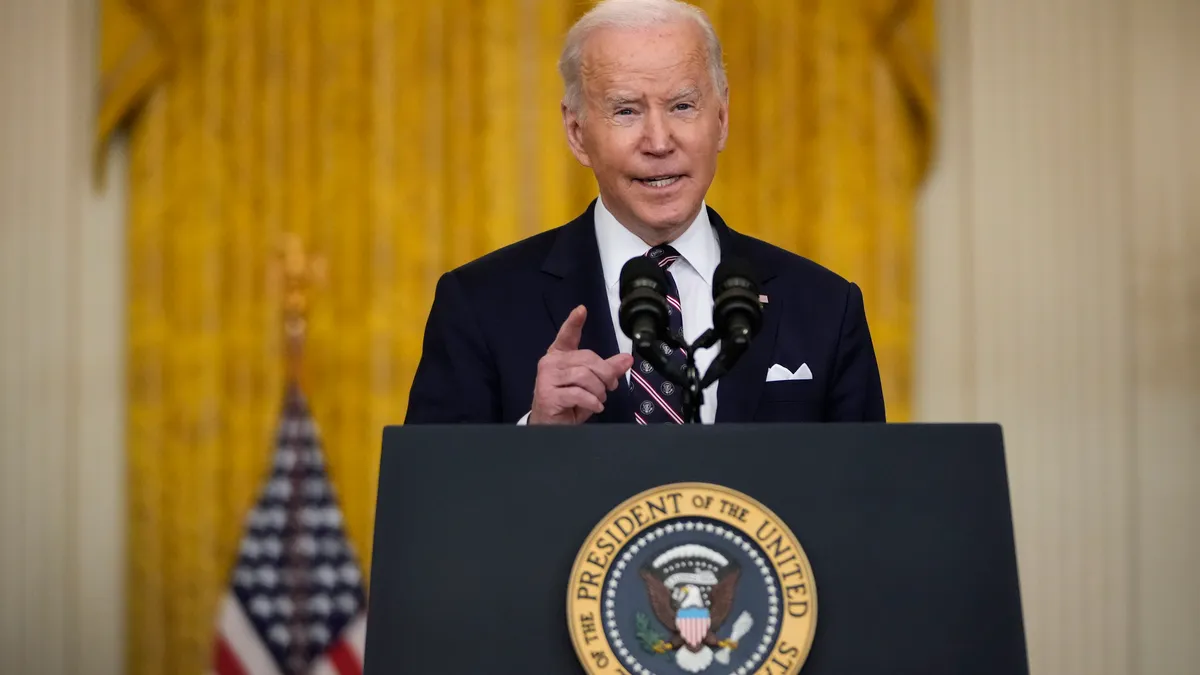Efforts to force plaintiffs to disclose their use of third-party litigation funding could get a boost from a Bloomberg Law investigation that identified Russian oligarchs with ties to President Vladimir Putin using litigation funding as a way to skirt economic sanctions.
Advocates have cited the involvement of hostile foreign actors as one of the reasons to put laws on the books requiring disclosure when third-party money is in a case, especially in the patent litigation space, which in recent years has become a big target of funders. Among the concerns is that foreign governments could leverage their investment to get valuable intellectual property information from the companies being sued.
“The lack of transparency [potentially gives] nefarious actors undue exposure to sensitive information belonging to U.S. firms that is critical to national security,” the Center for Strategic and International studies says in an analysis it released last month.
This and other risks posed by foreign money is one of the main drivers of legislation introduced last year in Congress on a bipartisan basis, led by John Kennedy (R-La.) and Joe Manchin (D-W.Va.) in the Senate. A companion bill was also introduced in the House.
“Foreign actors such as China and Russia use third-party litigation funding to support targeted lawsuits in the United States, undermining our economic and national security,” Manchin said in announcing the bill last September.
Almost a dozen states have similar bills under consideration, a LexisNexis analysis shows, the latest in Florida, introduced in January.
“The ability to step in and have sway in our court system, that’s frightening,” Florida state senator Jay Collins (R) said about foreign investors in discussing the bill, Bloomberg Law reported.
Industry supporters say the concern over foreign influence is overblown.
Adam Mortara, an attorney and former clerk to U.S. Supreme Court Justice Clarence Thomas, has said protections are in place to keep intellectual property out of the hands of foreign investors.
“Under the Federal Rules, corporate defendants can protect highly confidential discovery material from unwarranted disclosure through the issuance of a protective order,” Mortara has written. “I’ve never seen a protective order that allowed a litigation funder to have access to such material, or of a litigation funder even inadvertently getting access to such material.”
Whatever the merits of arguments for and against mandatory disclosure, the Bloomberg investigation could add fuel to lawmakers’ call for legislation.
The Russian case involves founders of Alfa Group, a private conglomerate that arose out of the fall of the Soviet Union in the early 1990s. The group launched a financing subsidiary, called A1, that provided financial support to a Russian agency that was trying to recover money allegedly taken by the owners of a bank as it collapsed in 2015.
The finance firm has since spent about $20 million, here and in the U.K., to help the agency try to get back assets it says the bank owners stole.
After Russia’s invasion of Ukraine in 2022 and the imposition of economic sanctions by the U.K. and U.S. governments, among other western countries, efforts to get assets recovered from the case transferred from the U.S. to the firm have been blocked.
Attorneys representing the firm say the money should be released, because the Russian founders of Alfa Group, who have been sanctioned, sold their interest in A1 to a board member who was not subject to the sanctions. And A1 itself isn’t sanctioned.
But to the U.S. judge involved in the case, the deal to sell A1 to the non-sanctioned board member looked like a deliberate attempt to evade sanctions, prompting the judge to keep the money locked up in the U.S., Bloomberg reported.
Efforts by attorneys to get the recovered assets transferred to the firm are ongoing, but the case shows how the lack of regulation of litigation funding, in contrast to the detailed regulations banks face, has created a legal gray area that could end up allowing the Alfa Group founders to eventually get a return on their investment if the blocked assets are freed up.
“While banks and financial firms are easy targets for [sanctions by] Western governments, the opaque world of litigation finance is more elusive,” the Bloomberg Law report said. “With no reporting requirements and few regulations, deep-pocketed investors can pour millions of dollars into a case without ever appearing on a court docket.”
Editor’s note: An earlier version of this piece included quotes from the International Legal Finance Association and its executive director that were taken out at the organization’s request.











